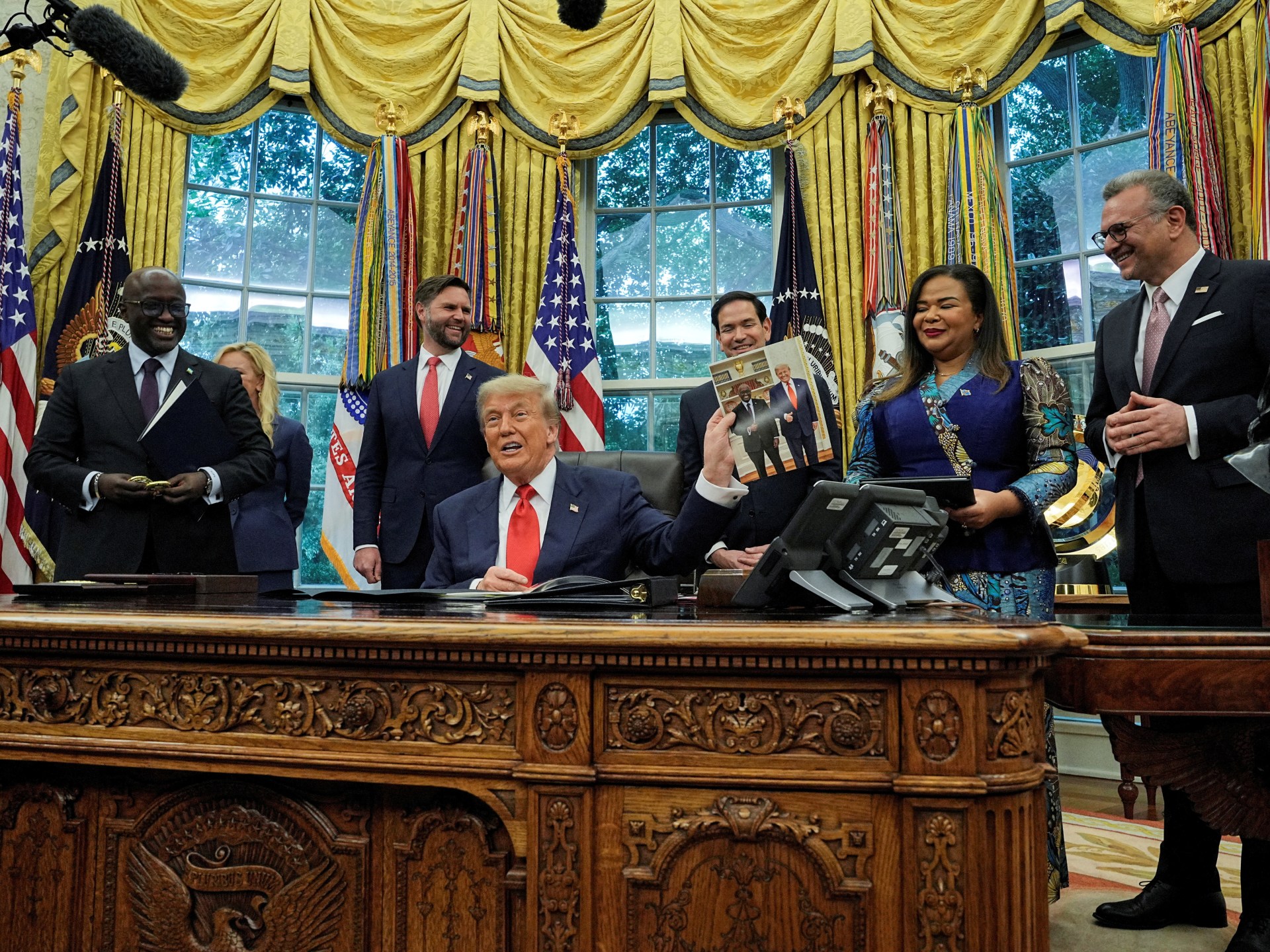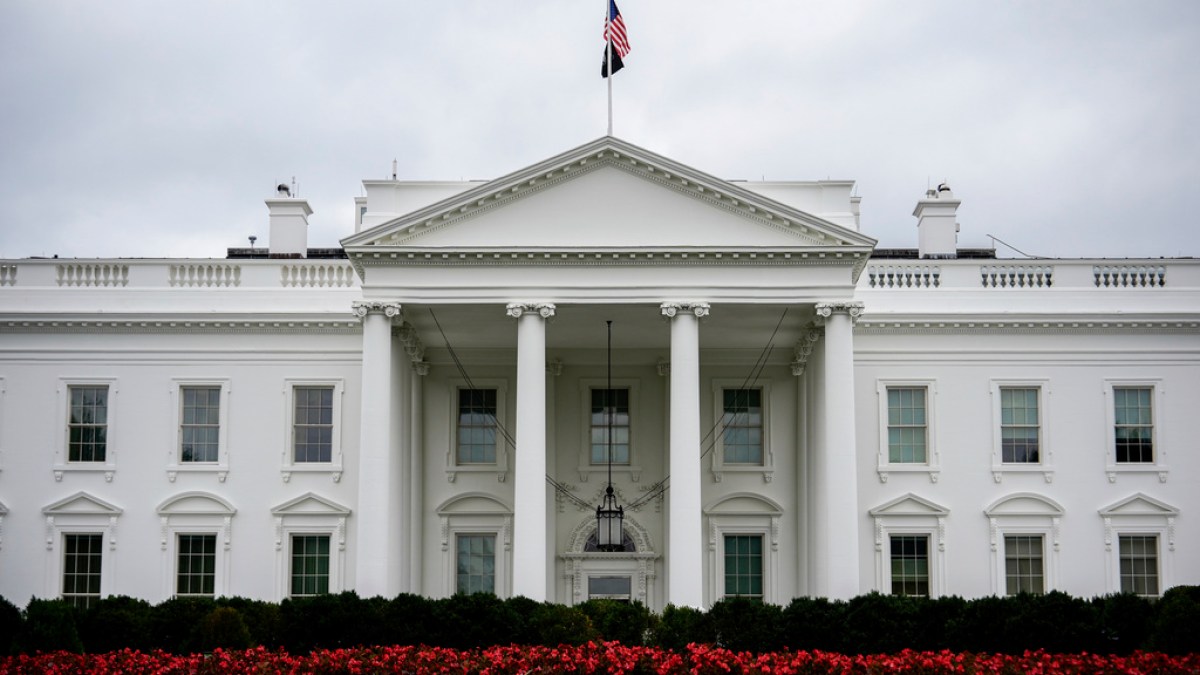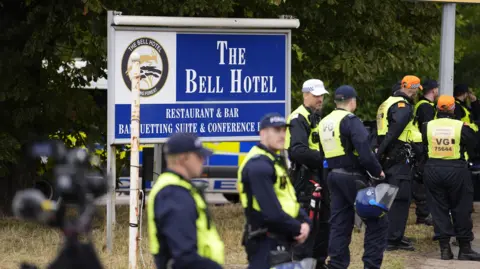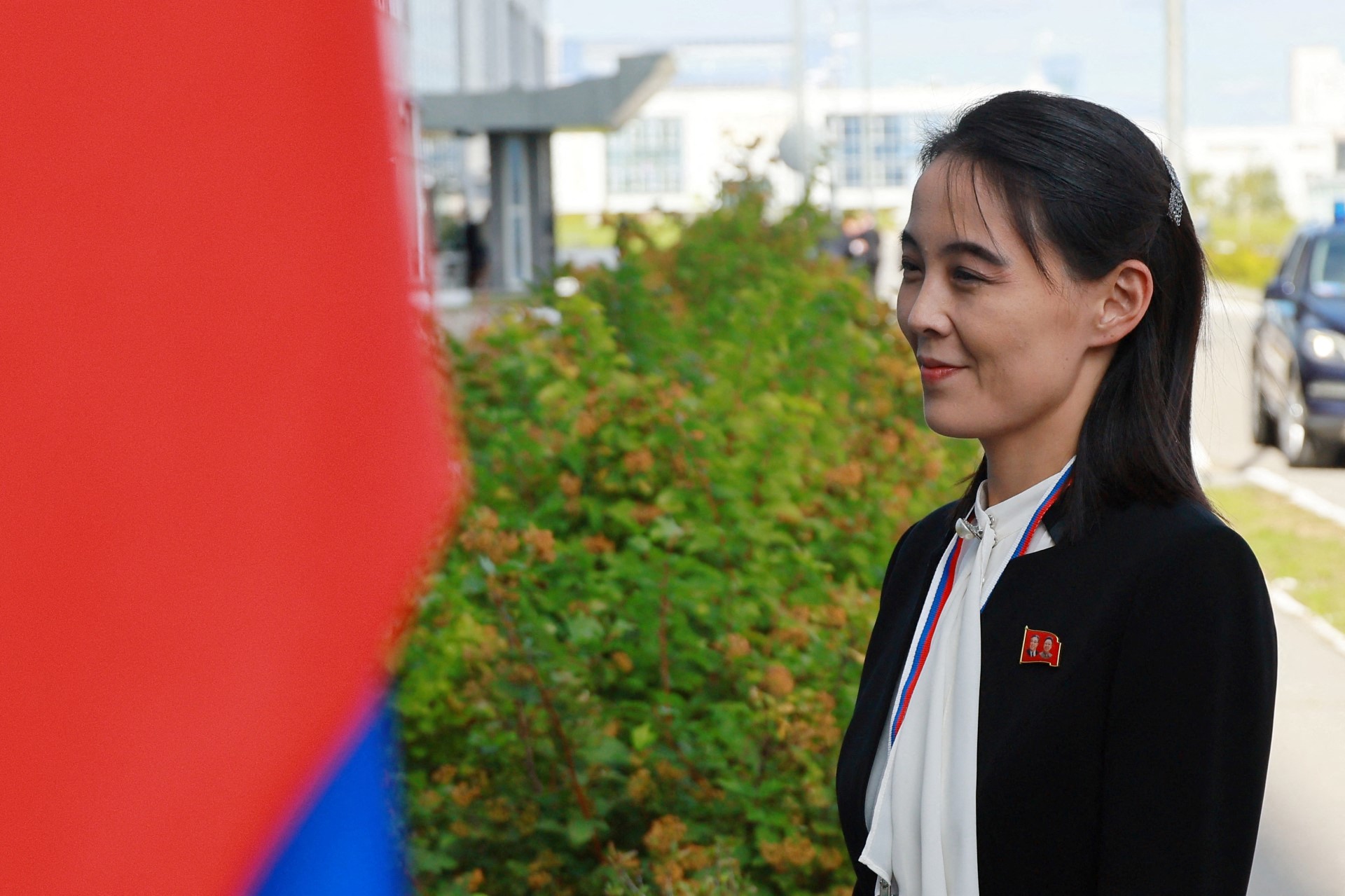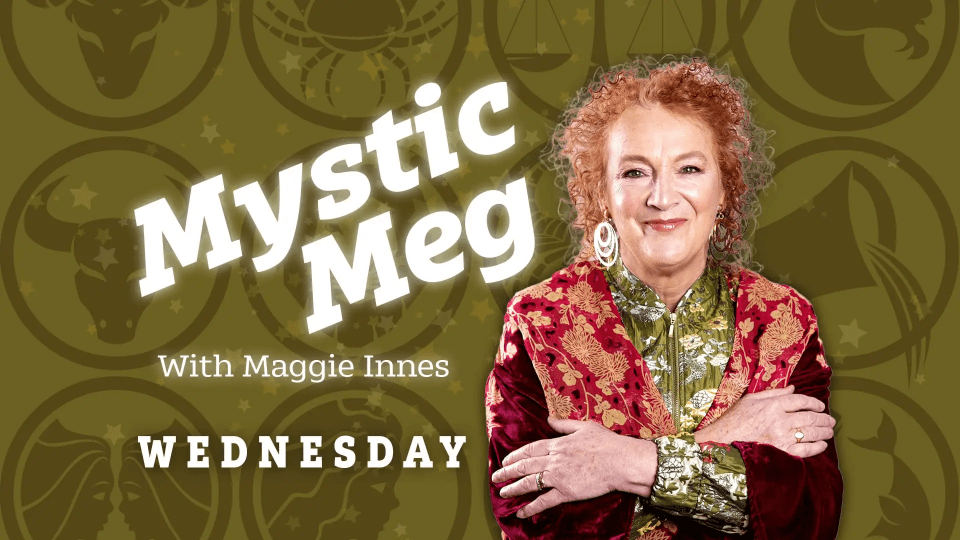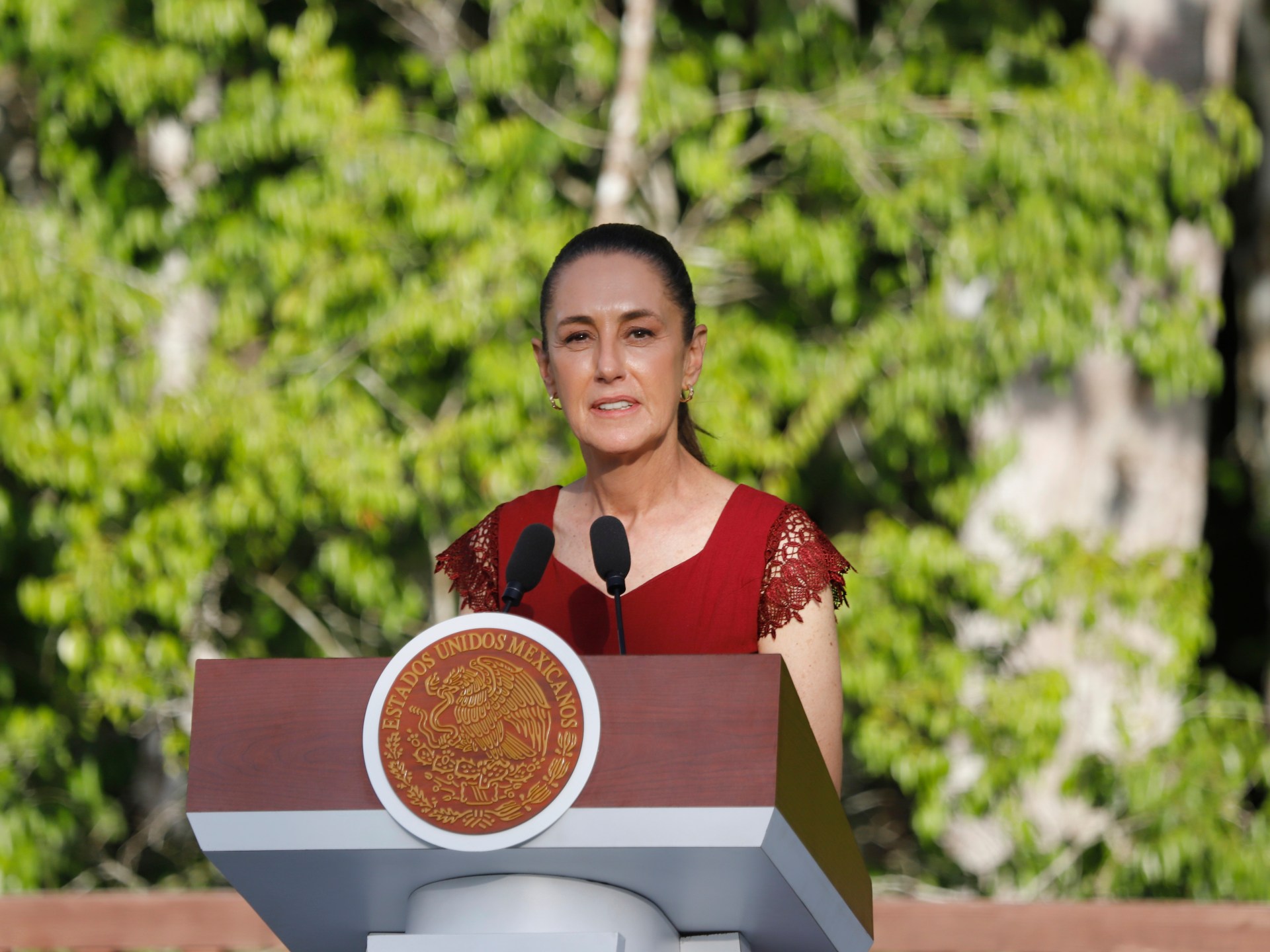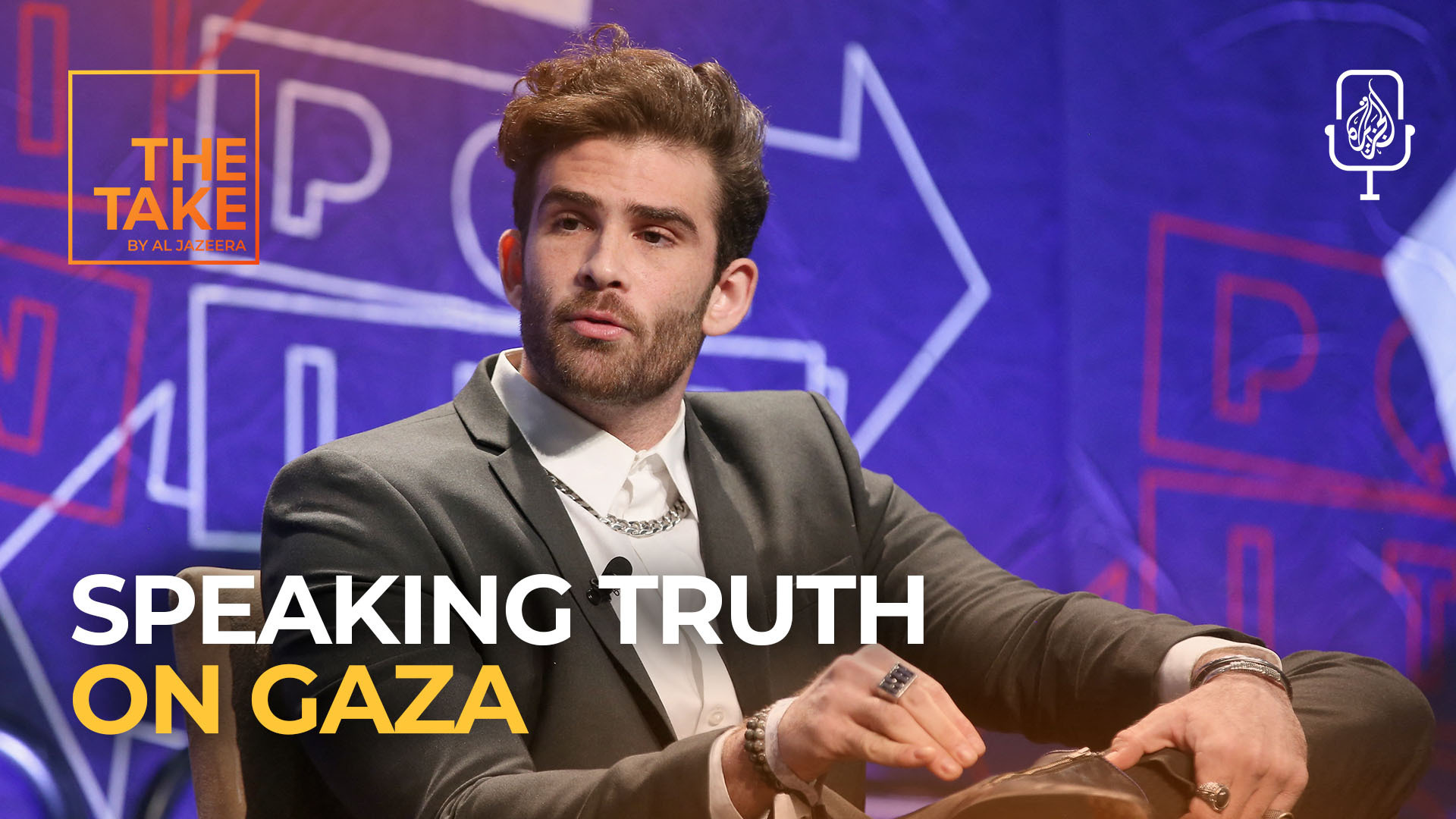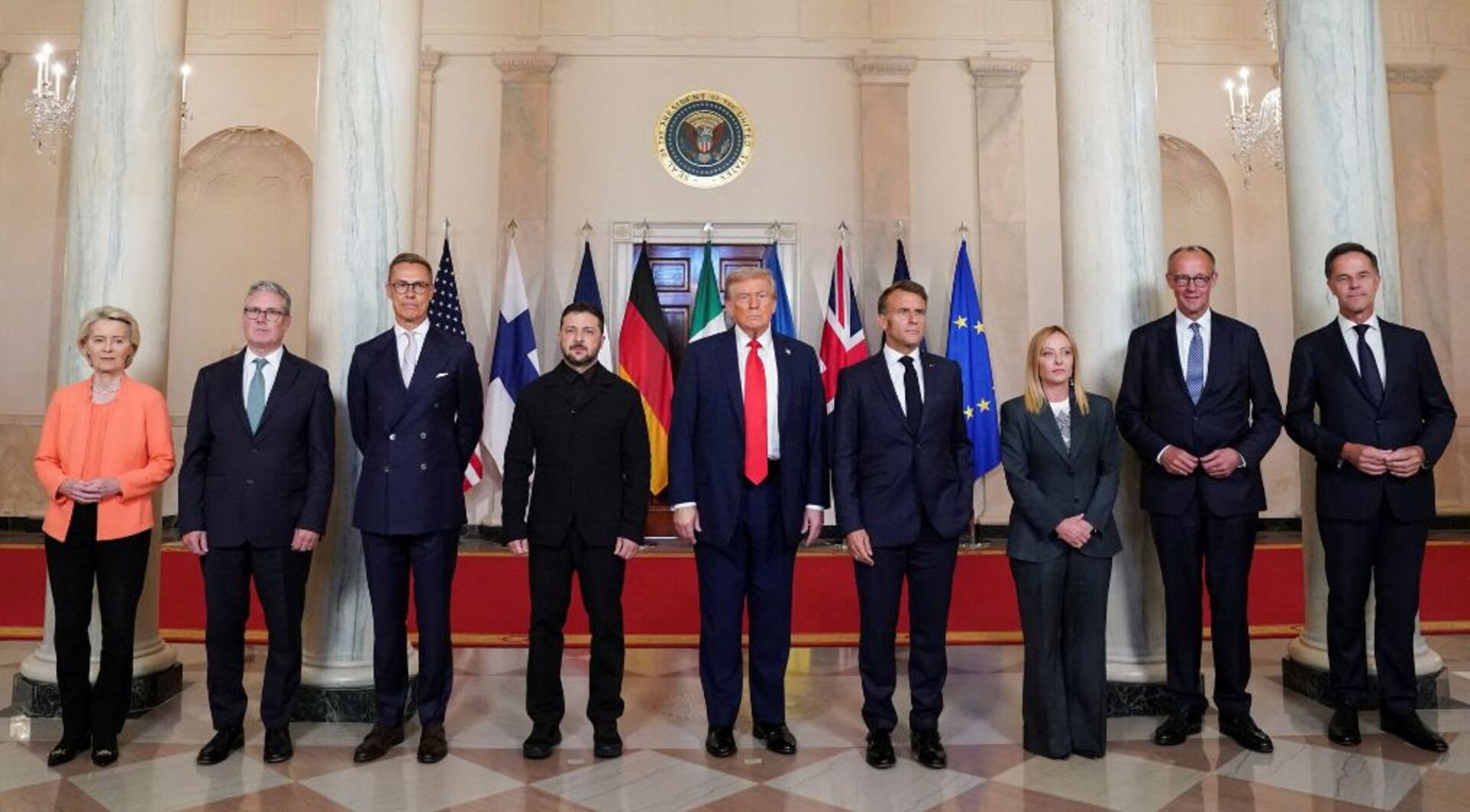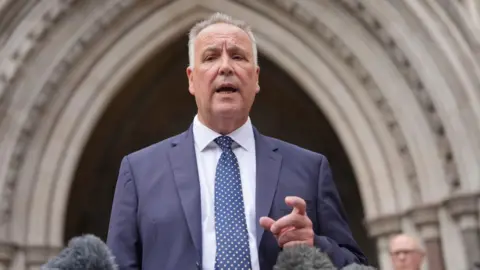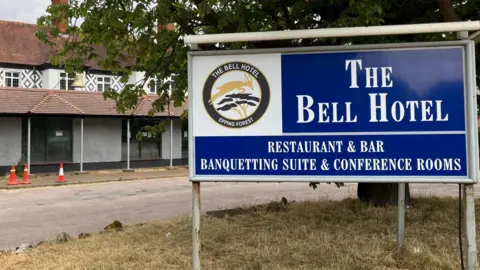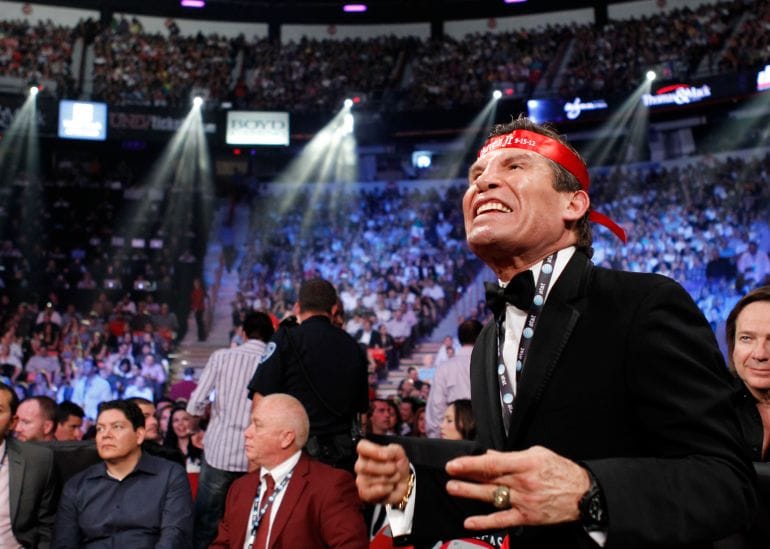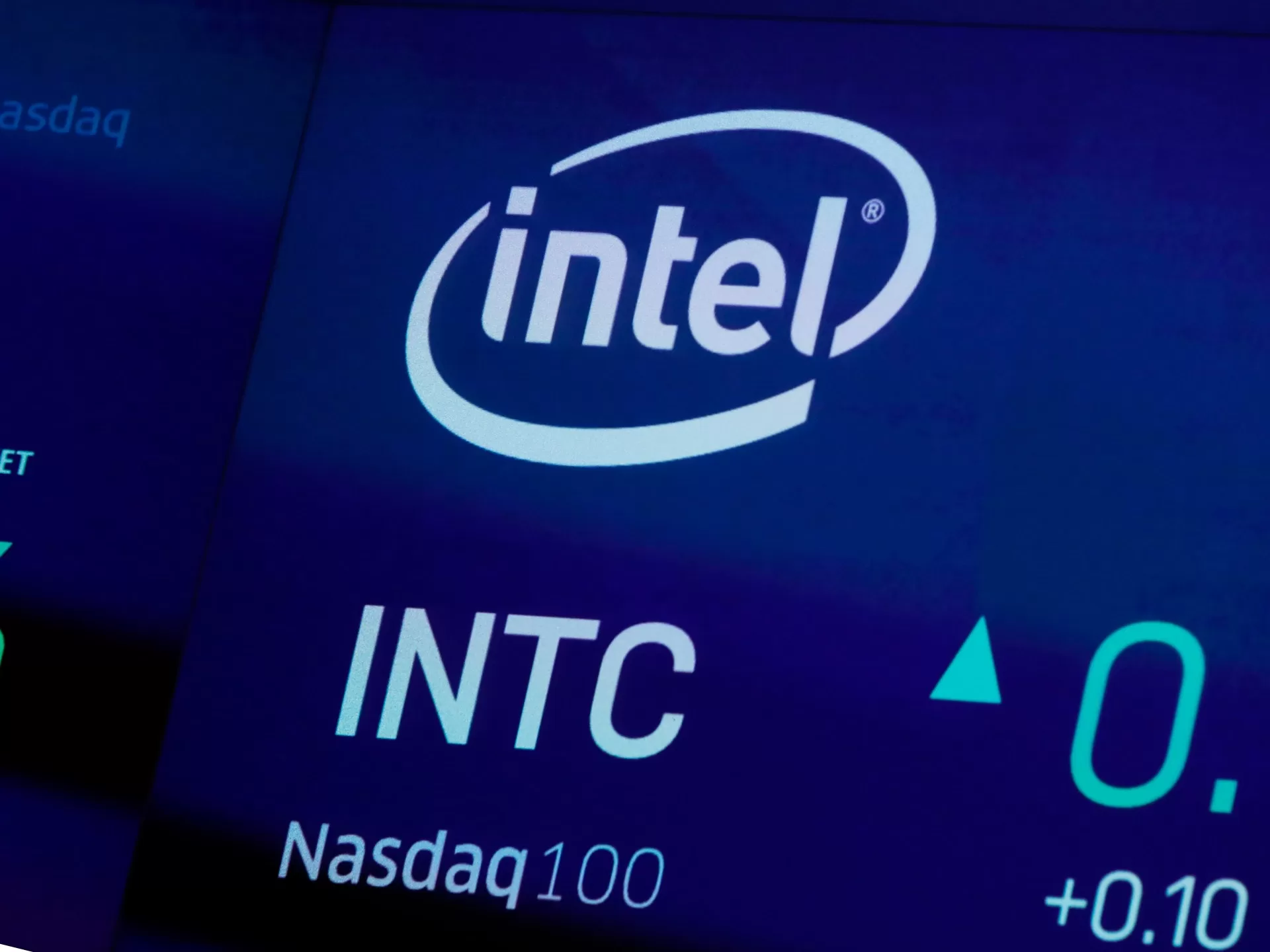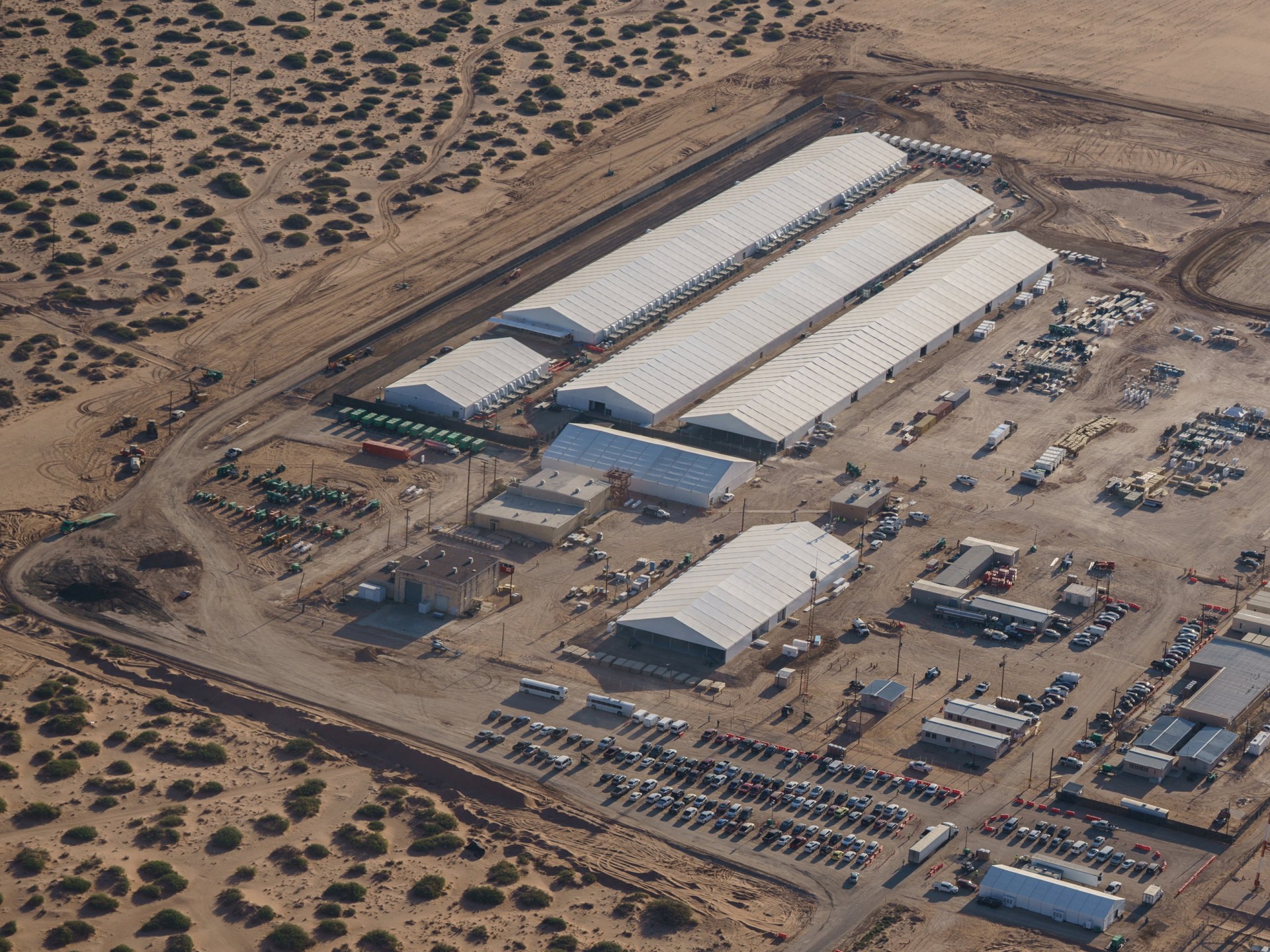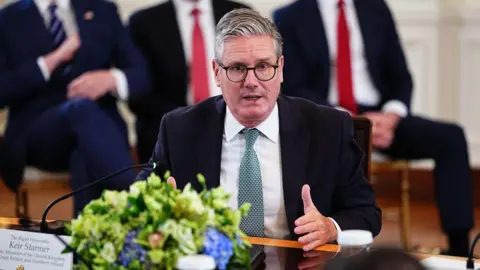Trump, send your deportees to Europe not Africa | Migration
On August 5, Rwanda announced it had agreed to accept 250 migrants under the Trump administration’s expanding third-country deportation programme.
Speaking from Kigali, government spokesperson Yolande Makolo said Rwanda would retain the right to decide which deportees to admit for “resettlement”. Those accepted, she added, would receive training, healthcare, and housing to help them “rebuild their lives”.
The programme forms part of President Donald Trump’s controversial pledge to carry out “the largest deportation operation in American history.”
It also marks the third deportation agreement of its kind on the African continent.
On July 16, the US sent five convicted criminals from Vietnam, Jamaica, Laos, Cuba, and Yemen to Eswatini, formerly known as Swaziland.
Described as “barbaric and violent” and rejected by their countries of origin, they are confined to isolated units at the Matsapha Correctional Complex, near the capital Mbabane, pending eventual repatriation.
Eleven days earlier, on July 5, eight men convicted of murder, sexual assault, and robbery were deported to South Sudan. Reports differ on whether any deportee was South Sudanese.
The deportations have already provoked widespread outrage – from civil society groups in Eswatini, to lawyers in South Sudan, who denounce them as illegal.
South Africa’s government has even lodged a formal protest with Eswatini.
Nigeria, meanwhile, has rebuffed US pressure to accept 300 Venezuelans, with Foreign Minister Yusuf Tuggar saying the country already has “enough problems” and “over 230 million people” to care for.
These deals are unfair.
The US is strong-arming others at the expense of vulnerable people.
Trump’s established brutality is horrifying. His family separations in 2019 left children terrified and alone, all in the name of policy.
The US is now sending people to Rwanda, Eswatini, and South Sudan – countries already struggling to care for their own citizens.
This truth exposes Trump’s Victorian view of Africa: a desolate, irredeemable continent unworthy of respect or equal partnership. His vision echoes a Western tradition, crystallised in Conrad’s Heart of Darkness, where Africa is portrayed as “dark” and “primeval” – a land deemed oppressive and violent, its people cast as incapable of understanding, feeling, or compassion.
That is not who we are.
Yes, Africa has challenges.
Nonetheless, we do not turn the marginalised into pawns, nor do we disguise exile as policy. Our humanity is unshakable and beyond reproach.
Today, Uganda hosts about 1.7 million refugees, making it Africa’s largest refugee-hosting country. This figure exceeds the combined refugee populations under UNHCR’s mandate in the UK, France, and Belgium today.
Europe must assume a far greater share of responsibility for asylum seekers and refugees.
These third-country deportation deals are not credible policy.
They are colonialism reborn.
No self-respecting African leader should ever agree to participate in an organised atrocity – not when Africa still bleeds from the wounds inflicted by the West: Sudan’s civil war, civic unrest in the eastern Democratic Republic of Congo, environmental devastation in Nigeria’s Delta, and the continuing reach of French monetary imperialism through the CFA.
“Uncle Sam” now plans to send both convicted criminals and desperate asylum seekers to Africa’s shores, instead of the warships of old. Both groups deserve support at home in the US, with extensive rehabilitation for offenders and safe sanctuary for the vulnerable.
If not, Europe can be the only alternative.
Let the architects of empire face the heat.
Let the wealthy, politically obnoxious allies of Washington carry the burden for once.
Rwanda, Eswatini, and South Sudan are among the poorest nations in the world, with per capita incomes just a tiny fraction of their former colonial rulers in Europe. Expecting them to carry the burden of America’s deportees is not only unjust – it is absurd.
A May 2025 study, Unequal Exchange and North-South Relations, undertaken by Gaston Nievas and Thomas Piketty, analysed foreign wealth accumulation over more than two centuries. It shows that by 1914, European powers held net foreign assets approaching 140 percent of GDP, underscoring how colonial transfers, artificially low commodity prices, forced labour, and exploitation fuelled Europe’s enrichment.
From Juba to Kigali, colonial plunder still drives global inequality.
A return to the systemic brutalities unleashed after the disastrous Berlin Conference of 1885, when European powers carved up Africa, cannot be accepted.
No matter what officials in Rwanda, South Sudan, or Eswatini claim in public, sending America’s cast-offs to Africa is colonial exploitation repackaged for today.
This is not a new strategy.
Beginning in the 19th century, many European colonies were reduced to offshore extraction centres and dumping grounds. France banished convicts and political exiles to territories such as present-day Gabon and Djibouti. Spain used Bioko Island in Equatorial Guinea as a penal settlement for deportees from Cuba.
The US has revived that same imperial entitlement, delivering a fresh blow to both Africa and the Americas. Most irregular migrants in the US come from Venezuela, Mexico, El Salvador, Guatemala, Honduras, Nicaragua, and Haiti – nations scarred by centuries of European colonialism and US imperial interference.
These countries embody the ongoing impact of colonial legacies and geopolitical meddling that propel migration.
Yet the West, and Europe above all, denies and disowns the consequences of its crimes, past and present.
European nations have certainly prospered through centuries of colonial exploitation. The UK, France, Belgium, and the Netherlands, for instance, boast robust welfare systems, public health networks, and prison rehabilitation programmes – magnificent structures built on centuries of colonial extraction.
They have both the means and the institutions to absorb deportees.
They also have the record.
These same powers have eagerly joined the US in targeting and destabilising sovereign nations across Africa, as well as Iraq, Afghanistan, and Libya – in wars widely condemned as violations of international law.
Every intervention has unleashed fresh waves of refugees and asylum seekers, hapless men, women, and children fleeing the very chaos Western armies engineered: powerless people whom the West openly ignores or despises.
Africa, by contrast, plays by the rules and adheres to the UN Charter. We honour sovereignty, respect international law, and strive for peace, even while shackled by colonial debt designed to keep us dependent.
Europe breaks the rules, Africa abides by them – yet Africa is asked to shoulder the burden.
The hypocrisy is staggering.
We will not bankroll, legitimise, or inherit the crimes of empire.
After all, we barely control our own destinies. The IMF and World Bank dictate our economies. The UN Security Council enforces old hierarchies. The G7 protects the West’s interests over us, Africans left impoverished and starving. Structural oppression allows the West to keep interfering in the lives of people across Africa and the Americas.
But we will not be complicit.
We will not be silent.
Western policies and interventions drive poverty, displacement, and instability in the Global South.
If the US insists on offloading its deportees, let it send them to those who built and still profit from this system of oppression.
The West must reckon with its spoils.
Leave Africa out of it.
Send Trump’s deportees to Europe.
The views expressed in this article are the author’s own and do not necessarily reflect Al Jazeera’s editorial stance.
